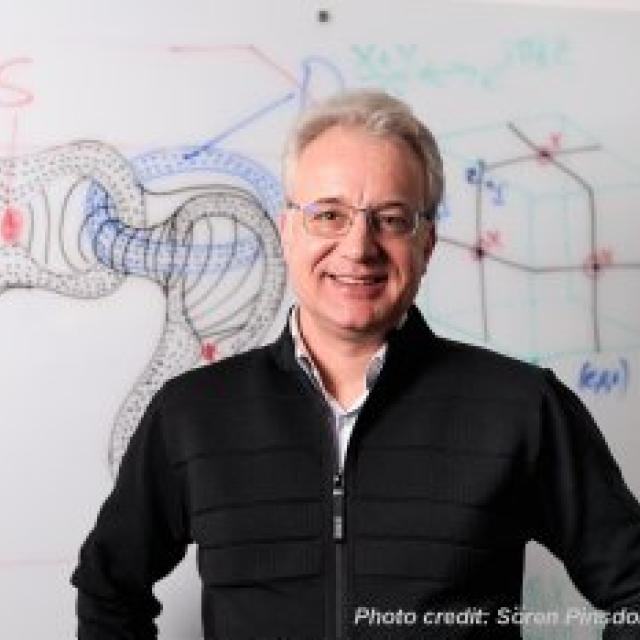Topology Seminar: Fault-tolerant cluster state quantum computation, and how homology helps describing it
Speakers
Details
I discuss a scheme of fault-tolerant quantum computation which is driven by local projective measurements on an entangled quantum state of many qubits, a so-called cluster state. There are two fundamentally different ways of evolving quantum states, namely unitary evolution and projective measurement. Both can be used to realize quantum computation. The approach discussed in this talk uses the latter. The constructions involved in making cluster state quantum computation robust against decoherence (=quantum-mechanical error) are in large part topological. In particular, Z_2 relative homology plays an important role. I begin with a short introduction to quantum computation, and explain the notions of "universality" and "fault-tolerance" in quantum computation. A very brief introduction to the field of quantum error-correction will be included. Then I turn to the main subject of my talk, cluster state quantum computation. After a brief discussion its universality, I will turn to the question of how to make cluster state quantum computation fault-tolerant. At that point, elements of topology will come into the picture.
Additional Information
This is a Past Event
Event Type
Scientific, Seminar
Date
March 17, 2010
Time
-
Location
